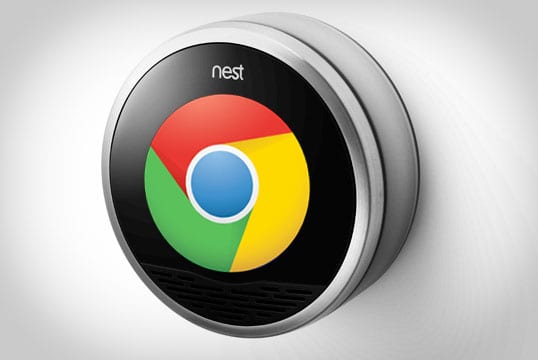Much has been made about the massive disruption that rooftop solar systems and distributed energy will bring to traditional energy business models. But there may be an even greater threat – the emergence of smart technology and software.
The growth of “negawatts” – where energy is not consumed – rather than megawatts is emerging as a major focus of industry analysts. What is becoming increasingly apparent is that while the rollout of solar modules may be massively disruptive, the major battles may be fought over software and other gadgets that will further reduce demand on centralised fossil fuel generation.
What makes this battle interesting is that the challenge is not only coming from a group of technology start-ups and up-starts, it is coming from some of the biggest companies in the world, including Google and Apple.
In a recent report titled Energy 2020: The Revolution Will Not Be Televised as Disruptors Multiply, investment bank Citigroup has a quick look at some of the technologies that are going to make life increasingly difficult for incumbent business models.
It notes that Google’s purchase of Nest and Apple’s introduction of its “Home Kit” signal a new era for energy demand management.
“The potential for tech giants to monetise “negawatts” through technology-facilitated energy efficiency represents a potentially significant transfer away from the hydrocarbon producers to the technologists, with utilities standing in the middle,” Citi notes.
 In June, Apple introduced its Home Kit – a suite of tools for controlling devices in your home such as thermostats and air conditioners, smart appliances, lights, cameras, garage-door openers, and security systems.
In June, Apple introduced its Home Kit – a suite of tools for controlling devices in your home such as thermostats and air conditioners, smart appliances, lights, cameras, garage-door openers, and security systems.
The idea of Home Kit is to create a “smart home” that can be controlled from a smart phone or similar. Just by saying, “Get ready for bed,” to your iPhone or iPad could result in automatically dimming the lights and locking the doors.
As CNET reported recently: The home is viewed by many as the next big battlefront for tech companies. That not only includes TV but also a home’s security system, lights, washing machines, and other appliances. All of the devices would connect in a so-called Internet of Things that can be controlled by a person’s smartphone or tablet.
 Apple isn’t the only company making a push to control the smart home. Google in January revealed plans to buy Nest Labs, the maker of the Learning Thermostat and the Protect smoke and carbon monoxide detector.
Apple isn’t the only company making a push to control the smart home. Google in January revealed plans to buy Nest Labs, the maker of the Learning Thermostat and the Protect smoke and carbon monoxide detector.
And Samsung that same month unveiled a new foundation for the smart home that would allow users to manage all of their appliance and devices through a single application.
Citi says of these developments: “Together (they) represent the early rumblings of a potentially epic battle between the tech giants and the conventional energy producers.”
It says energy demand management is one key aspect of the connected home, and the monetisation of “negawatts” (an amount of energy unused due to greater efficiency or demand management).
Negawatts are now as big an industry as the production of megawatts of electricity. As we reported in April, HSBC estimated the global market for energy efficiency was around $US375 billion in 2012 – that’s as much as was invested in fossil fuel electricity generation in that year, and 1.5 times the amount invested in renewable energy.
The International Energy Agency estimates that energy efficiency measures have, since 1974, saved around two-thirds of the energy that might otherwise have been consumed. This “decoupling” of energy use and GDP growth, says HSBC, means that each billion of global GDP required almost 40 per cent less energy in 2012 than it did in 2002.
In all the scenarios painted by the IEA and others on tackling climate change, cutting pollution, decarbonising electricity and saving money – creating “negawatts” rather than adding “megawatts” – is absolutely key in extending the so-called “carbon budget”.
And HSBC says there are four reasons why governments would want to encourage energy efficiency: energy security, industrial competitiveness and decarbonisation and pollution goals. It says energy efficiency is widely recognised as the most powerful tool to meet the challenges of energy demand and security. It can also help meet decarbonisation targets along with enhancing economic competitiveness.
But it is the entry of these new players – with expertise in consumer engagement – that also represents an existential threat to utilities, which have a notoriously poor level of engagement with customers – and little to no brand loyalty.
And it is not just the tech giants that are entering the market. Home security and telcos are also assessing their options. Late last week, Protection 1, a closely held security company backed by private equity firm GTCR, announced it will start selling solar panels to customers.
The home and commercial security and automation company has almost 2 million customers in the US. CEO Timothy Whall told Bloomberg that profits from the fast-growing solar market could “easily equal” those from its security business.
“We certainly like the financial model and it’s a nice extension from our home automation” business, Whall said. “The timing is good for the solar business.”
Protection 1 will offer systems for no money upfront to lease customers in a bid to tap increasing demand from households seeking to cut power bills. Home security and automation company Vivint is already the second-largest home solar installer.










